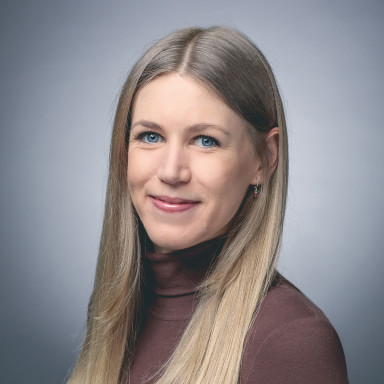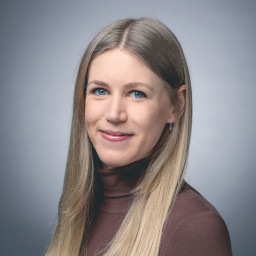- This fund offers a different way to invest in Asian and emerging economies
- Robin Parbrook and Alex Deane took over the fund’s management at the start of the year
- They have the support of a team of analysts based across the region to uncover some of the most exciting opportunities
- This fund is on our Wealth Shortlist of funds chosen by our analysts for their long-term performance potential
How it fits in a portfolio
The Schroder Small Cap Discovery Fund invests in smaller businesses that are based in Asian and emerging markets or make most of their money in these areas. Smaller and more innovative businesses offer lots of growth potential, but they're higher risk because they're at an earlier stage of their development. The fund could therefore be used in a broader investment portfolio that's able to accept more volatility in search of higher potential long-term returns. We think it could fit well with Asian and emerging markets funds focused on larger firms but should only form a smaller part of an investment portfolio.
Manager
Matthew Dobbs stepped down as manager of this fund from 1 January 2021. His long-term colleagues Robin Parbrook and Alex Deane took over as the fund’s co-managers. Until late 2021, Dobbs has taken on an advisory role, in which he offers ongoing support to portfolio managers and analysts at Schroders.
Parbrook is another veteran Asian fund manager. He joined Schroders in 1990 and has spent the bulk of his investing career living in Asia. Parbrook has managed the open-ended Schroder Asian Total Return Fund since 2007 and the Schroder Asian Total Return Investment Trust since 2013. He has built a strong track record and has a similar fund management style to Dobbs.
Deane joined Schroders in 2015 and has been a global smaller companies and Asian equities analyst. Over that time, he worked closely with Dobbs, and provided analysis support and portfolio ideas. He has applicable analyst experience for co-managing this fund, though this is Deane’s first fund manager role, and as such he does not have his own track record.
There are thousands of companies in this part of the market, so the managers have the help of a team of analysts based across Asia. They help sift through the market and uncover what they believe to be the most promising opportunities.
Process
Smaller companies tend to be overlooked by many investors. Yet many offer lots of growth potential, often because they're using new technologies or developing exciting new and innovative products. The managers use this opportunity to spot those with exciting potential before they're noticed by other investors.
The managers work closely with Schroders' Asian and smaller companies teams to help generate research and ideas for the fund. They look for companies with good cash flows, strong franchises, a quality management team, superior corporate governance standards and a strong business model that's able to defend against competition. Next, they aim to forecast the earnings of each business, which could ultimately influence the direction of the share price.
The managers are prepared to be patient. They invest in companies for the long term and as they start to grow into larger firms. Many developing economies are gradually switching from being export-led to focusing on domestic consumption, and the fund is focused on areas that could benefit from greater consumer spending. It’s also focused on some of the relatively more stable Asian countries, including Hong Kong, India and Taiwan, though other high-risk emerging countries, such as Brazil and Mexico, also feature in the fund.
Since taking over the fund, Parbrook and Deane have reduced the number of holdings. They have sold some of the smallest investments that might not have as much of an impact on the fund’s performance. They have focused on companies in which they have the greatest conviction, and a smaller number of investments means each one could have a greater impact on performance. The fund is still fairly diversified though, with 66 investments.
Current high-conviction investments include Merida Industry, based in Taiwan. It manufactures own-brand bicycles and e-bikes and owns part of premium bicycle brand Specialized. According to the managers, both brands are strengthening thanks to product innovation and e-bike demand. The potential market is also increasing due to lifestyle changes and green initiatives.
Culture
Schroders is a well-established asset manager with offices based all over the world. It believes the importance of Asian and emerging markets in the global economy has increased significantly over the years and expects this is to continue. We think Schroders is dedicated to investing in this part of the world and supporting the teams that invest there.
We think the managers have complementary skillsets, with Parbrook able to draw on his years of experience investing in Asia and broader knowledge of various industries, while Deane brings more technical analysis to the table. They stress the importance of company meetings and interacting with Schroders’ analysts, making use of the resource available to them.
Environmental, social and governance (ESG) issues have always formed part of the team’s company analysis. Good corporate governance has always been key to the process, while the importance of environmental and social factors has also increased in recent years. The managers also engage with companies on how they can improve on sustainability issues.
Cost
This fund's annual ongoing fund charge is 0.95%, but after a 0.24% saving it's avaliable at 0.71% through the HL platform. This makes it one of the cheapest actively managed funds in the Asian and Global Emerging Markets sector available through HL. The fund discount is achieved through a loyalty bonus, which could be subject to tax if held outside of an ISA or SIPP. The HL platform fee of up to 0.45% per year also applies.
Performance
Robin Parbrook has an extensive track record and managed funds investing in Asia since the early 2000s. Most recently he’s managed the Schroder Asian Total Return Fund since 2007 and over this time has performed significantly better than the broader Asian stock market. As always, past performance is not a guide to future returns.
Since taking over the Small Cap Discovery fund, it has performed broadly in line with the benchmark used by Schroders to measure returns, which is made up of various smaller companies markets. The fund’s performed strongly against the main emerging stock market, as measured by the FTSE Emerging Index, helped by its focus on small and medium-sized companies, which have outperformed larger businesses.
Investments in Taiwan and India have helped performance so far this year. Not investing much in South Korea or South Africa has recently held back performance though. The managers don’t find enough companies in these markets that meet their investment criteria. In particular, they don’t feel many South Korean companies meet their high ESG standards.
Overall, the managers take a relatively conservative approach to investing in this higher-risk part of the market. The fund has tended not to fall as far when the market drops but might not outpace the market when it’s rising quickly.
| Annual percentage growth | |||||
|---|---|---|---|---|---|
| Aug 16 - Aug 17 | Aug 17 - Aug 18 | Aug 18 - Aug 19 | Aug 19 - Aug 20 | Aug 20 - Aug 21 | |
| Schroder Small Cap Discovery | 12.9% | -4.5% | -3.0% | 3.8% | 34.9% |
| FTSE Emerging | 24.9% | -2.2% | 6.1% | 3.1% | 17.3% |
Past performance is not a guide to the future. Source: Lipper IM to 31/08/2021
Find out more about Schroder Small Cap Discovery including charges
Schroder Small Cap Discovery Key Investor Information
Want our latest research sent direct to your inbox?
Our expert research team provide regular updates on a wide range of funds.

